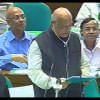Loan default and flaunting money

Recently, in Davos at the World Economic Forum, the Governor of the Reserve Bank of India, Raghuram Rajan sent a strong message to the Indian businessmen who default thousands of crores of bank money, but maintain a lavish lifestyle. He asked these defaulting companies to cut down their expenses instead of flaunting money and stop sending a wrong message to the public. He also felt that these defaulters push up the cost of borrowing for others. His statement came within a few weeks when he wrote a letter to his staff, urging them to go after the rich and powerful wrongdoers. He further added that because of the culture of impunity, these defaulters get away with far worse.
How perfectly the words of Raghuram Rajan fit into the context of Bangladesh! The culture of bank default and at the same time vaunting of money exists in Bangladesh as well. Misappropriation of bank money is also an old problem. This has existed in our society for decades. Over the years, it has only escalated further. The size and depth of the sector has increased. The number of banks, branches, customers, and the volume of bank business have all increased. But the overall performance of the banking sector is still worrying, with new problems emerging in various forms and dimensions. Indicators such as capital to risk weighted asset, non-performing loans, expenditure-income ratio, return on assets, return on equity, liquid assets and excess liquidity reflect the poor health of banks, despite several measures taken by the central bank. Reform measures taken since the 1990s to improve the performance of the sector have resulted in only partial benefits.
Following a few glaring irregularities during the last few years, the central bank has increased monitoring and inspection of the sector. However, non-performing loans have not reduced. Large borrowers are allowed to reschedule their loans on easy terms. They are protected by the political system. Loans of some companies don't match their turnover. On the other hand, in an attempt to show their profitability, banks sometimes show some of their bad debts as current loans. They do not want to classify these loans so that they don't have to make provisions towards them and their books are shown clean. As large defaulters are mostly close to the power centre, it is also difficult for banks to initiate a successful recovery process. But when they pile up such loans, they cannot manage them.
There are also unholy alliances among big borrowers, bank officials and those involved in politics. Previously, this used to exist only in state-owned banks. But this has now extended to private banks as well. And even after big irregularities, it takes a while for banks to take actions against the perpetrators. Moreover, actions are taken arbitrarily in most cases, not following proper guidelines. So the damage is rarely reversed. Recent incidents of misappropriation by the Hallmark group and irregularities in Basic Bank are only some cases in point.
Though the number of wrongdoers is not very high in the country, they affect most clients through their malpractices. As it is, doing business is not so easy in Bangladesh. The World Bank ranked Bangladesh 174th among 189 countries in its Doing Business Report for 2016, after looking at indicators such as, starting a business, dealing with construction permits, getting electricity and registering property. According to the Global Competitiveness Report 2015-16 of the World Economic Forum, Bangladesh ranked 107 among 140 countries. Access to finance featured as the fifth problematic factor for doing business along with corruption and inadequate supply of infrastructure.
In addition to improving infrastructural facilities and establishing political stability, the business community of Bangladesh has been asking for lowered interest rates for long, as they find the cost of doing business going up day by day due to higher costs of borrowing, among other reasons. True, lending rates cannot be lowered due to higher deposit rates, but the interest rate spread is also high. The major reason for higher lending rates is the inefficiency of banks and high non-performing loans. Because of undue advantages given to defaulters, genuine business persons are being penalised with high costs of borrowing. The level playing field is thus rendered unstable. While the profitability of good business persons is lowered, the entry of small and medium businesses gets squeezed. Understandably, this situation can neither expedite nor sustain the growth of the economy.
But the default issue is not only related to the weakness of the banking system. It has a lot to do with the value system and cultural practice that exist in our society. We don't care about the source of money as long as we are happy with big donations to a mosque or a school or a hospital. We get charmed by the stylish lifestyle of those with embezzled money, but dare not say a word about them. But if the overseeing authorities with power cannot pronounce strong words and take measures, what can the society do? Moreover, such practices are also not officially disclosed, and so we can't really depend on the name and shame approach. There were attempts by at least two finance ministers in the past to publish lists of defaulters in the national Parliament. Such attempts at disclosure are longer made by lawmakers. The system is biased towards the rich and powerful. While well-known defaulters are often invited to important official programmes, members of the regulatory authorities are also not infrequent guests at parties thrown by defaulters. Does this reflect helplessness or a lack of moral strength of the regulators? Only they can tell.
The writer is Research Director at the Centre for Policy Dialogue.

 For all latest news, follow The Daily Star's Google News channel.
For all latest news, follow The Daily Star's Google News channel. 








Comments